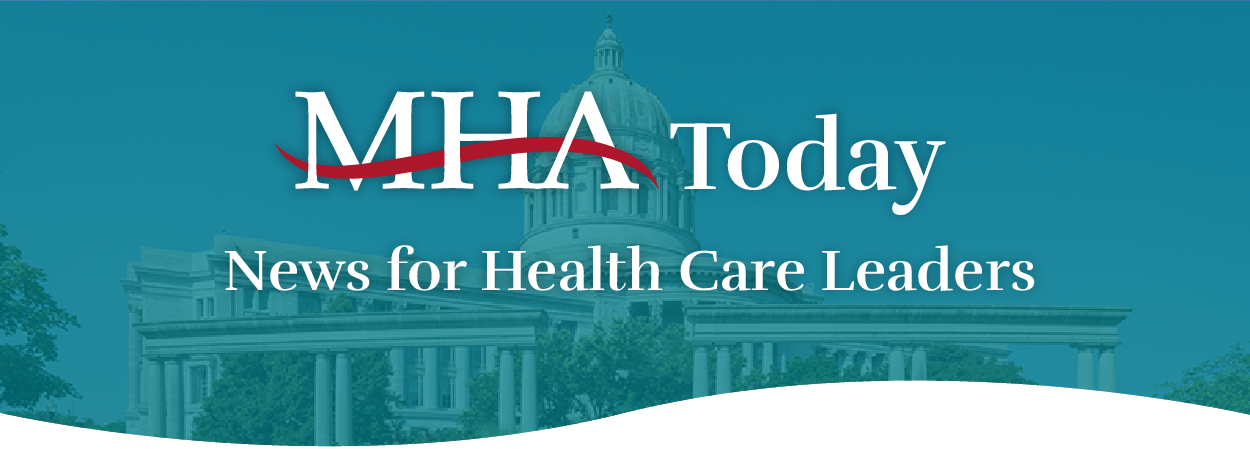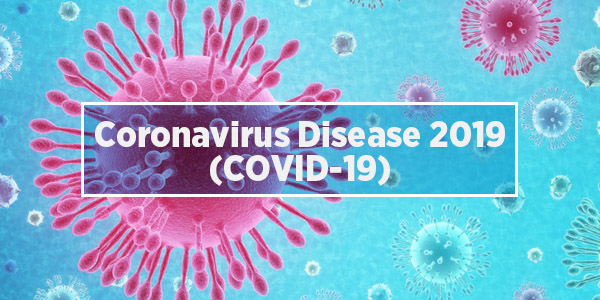Actions
Type

|
|
|
MHA Today is provided as a service to members of the Missouri Hospital Association. Additional information is available online at MHAnet.
|
|
|
COVID-19 Updates |
|

For the latest updates and most current information on coronavirus disease 2019, visit MHA’s website. |
|
 |
|
|
Insights |
|
|
Several years ago, I penned a column that compared the process of selling Medicaid expansion to the Missouri General Assembly as a pitch on the television series “Shark Tank.” The question — would a savvy investor take up Medicaid expansion in Missouri when presented with the facts? The answer then — a resounding yes! Six years later the evidence from states that have adopted expansion affirms that it’s still a winning proposition. The facts are clear. No single state that has expanded Medicaid has rolled it back. Studies have shown that it created an economic advantage for states that have adopted expansion. This includes some very conservative states — including Indiana during the governorship of Vice President Mike Pence, who was among the first to expand Medicaid. Studies show Missouri can benefit similarly when armed with a well-synchronized implementation plan. Our state can create significant economic value while improving lives. What does a “yes” vote on Amendment 2 mean? As our campaign has demonstrated, expansion would bring precious tax dollars back to the state of Missouri, grow our economy, support access to rural health services and make it easier for veterans to access care. That’s what happens when we provide Medicaid coverage for an additional 230,000 Missourians. Critics assert that Missouri can’t afford Medicaid expansion. They claim — depending on the source — that it could cost the state between $200 million to $2 billion annually. But when you push back on these arguments, there really is nothing behind them. Everyone is entitled to their own opinion, but not their own set of facts. So why are critics ignoring all the research and empirical evidence? Because recognizing it invalidates their only talking point. Six years ago, there was a clear opportunity for significant ROI. Today, in the middle of a pandemic, the case is stronger yet. A June report from the Center on Budget and Policy Priorities supports the proposition that the uninsured may, out of concern that they can’t afford it, forgo testing or treatment for COVID-19. And since many of the uninsured that would benefit from expansion are “essential or front-line workers,” their potential exposure and possible need to access care is salient. These workers — those employed in transportation, waste management, grocery and other retail, food production, and health care — are more likely to be required to show up for work. Stay-at- home orders largely exempt or bypass these individuals. If that wasn’t convincing enough, think about the long-term impact of the pandemic — even after a vaccine is available. I was on an American Hospital Association-sponsored call last week, where Dr. Anthony Fauci was a guest. When asked about the progress toward a vaccine, Dr. Fauci made two important observations. First, we don’t know whether a vaccine will provide complete immunity — he hoped for at least 75%. And even if we achieve that lofty goal of 75% immunity (50% is the threshold for a vaccine to be released for broad authorized use), an effective vaccine might very well act like the flu vaccine — it helps minimize the most severe symptoms, rather than prevent you from becoming sick. Second, he was concerned about a vaccine’s durability. Unlike the measles vaccine, which provides lifetime protection, a COVID-19 vaccine may only provide immunity for “several seasons” before requiring a booster. The bottom line is that we are going to have to learn to live with this disease for the rest of our lives. We need every tool available to do that. Expanding Medicaid coverage to 230,000 could provide a huge lift for the state in both combatting COVID-19 and sustaining our economic comeback. Campaigns usually are built in two parts — education and Get Out The Vote. We’ve made a strong case and now we’re in the process of turning out voters. Between now and Tuesday, we’ll be encouraging absentee voters to turn in their ballots and in-person voters to show up on Election Day. You can help with GOTV. Reach out to friends and family members, and urge their support of Amendment 2. Ask them to do the same with their networks. Leann Chilton from BJC Healthcare coined what I think is a great outreach motto — “Text 10 and Call 10.” That is, text 10 friends and call 10 friends. Every vote matters! Thank you for all your work so far. Let’s keep pushing until the finish line. Our communities are looking for our leadership. Let me know what you’re thinking. Herb B. Kuhn
|
|
|
Regulatory News |
|
CMS Releases Medicare FY 2021 Final Rules For SNF, IPF And HospiceStaff Contact: Andrew Wheeler The Centers for Medicare & Medicaid Services released fiscal year 2021 final payment and policy updates for the Medicare hospice, skilled nursing facility and inpatient psychiatric facility prospective payment systems. CMS is projecting payments to SNFs will increase by 2.2%, or $750 million; payments to IPFs will increase by 2.3%, or $95 million; and payments to hospice providers will increase by 2.4%, or $540 million. MHA will publish issue briefs and additional details soon.
|
|
|
Quality and Population Health |
|
CMS Seeks Feedback On QualityNet Submission ProcessStaff Contact: Sherry Buschjost The Centers for Medicare & Medicaid Services is seeking feedback from hospitals that use QualityNet to submit data for the following quality reporting programs.
Interested hospitals will be asked to participate in a 30-60 minute call to discuss the submission process and potentially test updates. Registration is required. AHRQ Promotes Rural Postpartum Mental Health ChallengeStaff Contact: Alison Williams The Agency for Healthcare Research and Quality is hosting a webinar at 1 p.m. CST Wednesday, Aug. 5, to provide an overview and panel discussion about its competition to improve postpartum mental health care for rural American families. The challenge seeks to elicit success stories and proposals to address postpartum mental health diagnoses and treatment in rural communities. Success story winners will receive $15,000 each, and winners in the program proposal category can win up to $50,000 to support implementation. Submissions are due Tuesday, Sept. 15.
|
|
|
Health Law Insight |
|
Appeals Court Reinstates 340B CutsStaff Contact: Jane Drummond or Andrew Wheeler The Court of Appeals for the District of Columbia Circuit overturned a favorable decision previously obtained by the American Hospital Association and other industry groups to roll back drastic cuts to the 340B program. The 2018 rule proposed to cut outpatient drug payments by approximately 28.5%, which the lower court deemed outside the U.S. Department of Health and Human Service’s authority to impose. The appellate court upheld the rule, finding the agency reasonably interpreted the Medicare statute. The court relied heavily on the Chevron doctrine, which grants executive agencies wide discretion in interpreting laws they administer.
|
|
|
Noteworthy |
|
DMH To Host Zero Suicide AcademyStaff Contact: Sarah Willson The Missouri Department of Mental Health, in partnership with the Coalition for Community Behavioral Healthcare, is hosting their fourth Zero Suicide Academy Wednesday, Aug. 26, through Thursday, Aug. 27. A Zero Suicide Academy is a two-day training for organizations that wish to dramatically reduce suicides among patients in their care. Using the Zero Suicide framework, participants learn how to incorporate best practices into their organizations to improve care and safety for their patients. All health care organizations including hospitals are encouraged to apply. This will be a virtual event and there is no cost for the course. Applications are due by Monday, Aug. 3.
|
|
|
Did You Miss An Issue Of MHA Today? |
|
|
July 27, 2020 July 29, 2020
|
|
Consider This …
|










 Public policy ultimately
Public policy ultimately